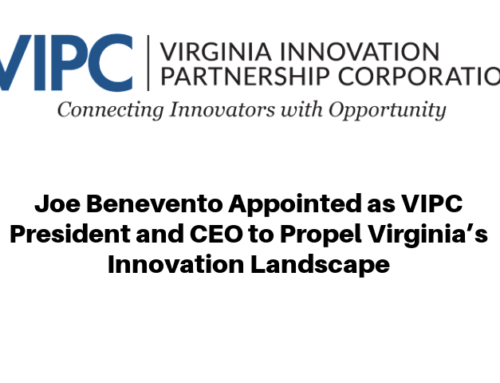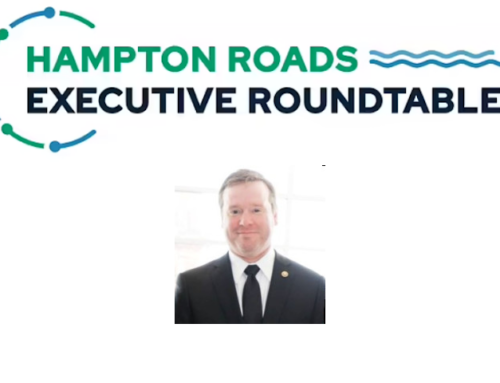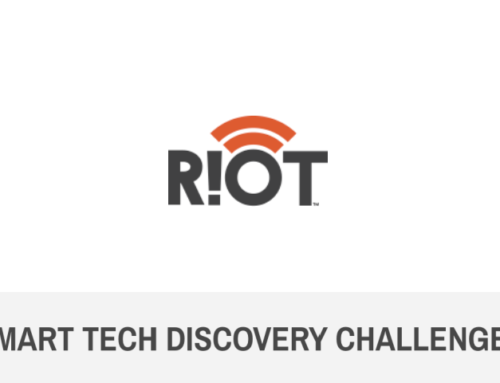From Richmond Times-Dispatch By
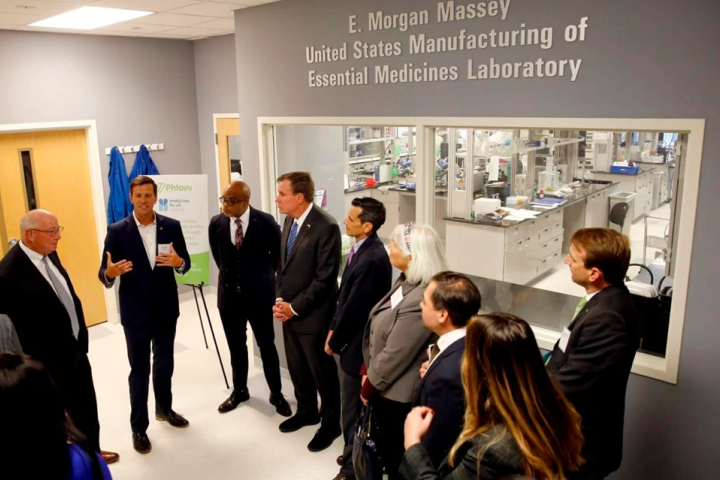
Frank Gupton, left, CEO of the Medicines for All Institute, and Eric Edwards, second left, co-founder & CEO of Phlow Corp., give a tour to, from third left, Makola Abdullah, VSU president, Mark Warner, US Senator, Michael Rao, VCU president, and others at Biotech Center, Virginia Bio+Tech Research Park in Richmond, Va., on Tuesday, October 4, 2022. The tour was the part of celebration for the nearly $53 million in federal funding for the Richmond-Petersburg region’s Alliance for Building Better Medicine.
Daniel Sangjib Min/TIMES-DISPATC
The Richmond area is planning a major pharmaceutical manufacturing initiative to build drugs here, restore the nation’s stockpile of essential medicines and to make them more affordably.
The sprawling enterprise has major players, including Virginia Commonwealth University, the cities of Richmond and Petersburg and drug manufacturers Civica, Phlow and AMPAC Fine Chemicals.
Now it has a new pivotal piece: the money.
The initiative, named the Alliance for Building Better Medicine, has received $53 million from the federal government’s Build Back Better Regional Challenge. Those funds come in addition to $14 million in local donations and $45 million from the state.
The money will help build labs in downtown Richmond and Chesterfield County and manufacturing facilities in Petersburg. Not only will the alliance bring jobs to the area, it will boost national security, said Sen. Mark Warner, D-Va., who came to Richmond on Tuesday to celebrate the budding development.
Only about 25% of drugs used in the United States are made in the U.S. Large percentages of drugs Americans use are manufactured in China and India, which Americans depend on. During the pandemic, India halted exports of an ingredient in Tylenol.
“We’ve got to reform that process,” Warner said.
It all started when Dr. Frank Gupton, VCU’s CEO of Medicines For All, and entrepreneur Eric Edwards wanted to make medicines for HIV, tuberculosis and malaria cheaper.
Gupton and Edwards started Phlow, which won a $354 million federal contract in May 2020 to build a national reserve of medicines and to make ingredients used to treat COVID-19. Then Medicines for All pivoted to COVID and found a way to rebuild Merck’s COVID-19 therapy and reduce the price from $2,000 a kilogram to $200.
Their efforts continue to grow.
The Richmond-Petersburg region was one of more than 500 groups to submit an application for federal funds generated by President Joe Biden’s American Rescue Plan. The local initiative was one of 21 winners.
“It’s a hope for the community that they can be more than they were yesterday,” said Keith Boswell, CEO of Virginia’s Gateway Region, an economic development organization.
Civica, a nonprofit drug manufacturer, has big plans to lower the cost of insulin — diabetics in the U.S. can pay up to $500 a month for treatment. But Civica aims to produce insulin at $30 per vial and $55 for a box of five pens.
Civica hopes to start selling insulin in 2024. It plans to hire 186 workers at its planned Petersburg facility and an additional 50 in a Chesterfield lab.
The city of Richmond wants to reignite the Coliseum area of downtown and transform it into the City Center Innovation District, containing mixed-use residential buildings, hotels and entertainment and life-science buildings. The alliance can help “change the landscape of downtown Richmond,” Mayor Levar Stoney said.
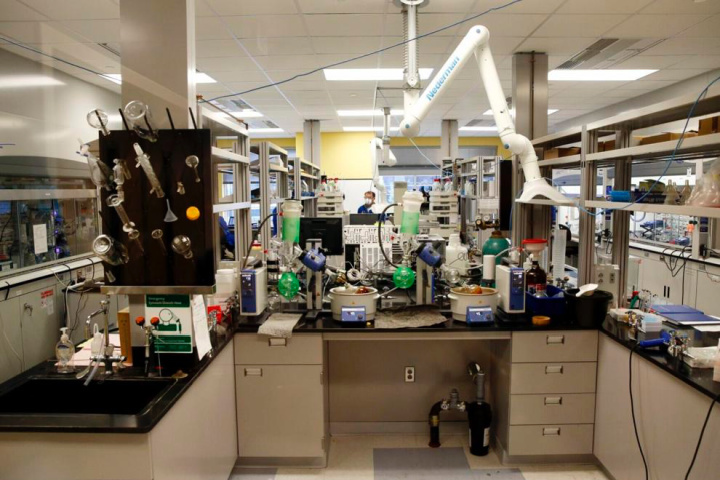
The Alliance for Building Better Medicine, an initiative that involves many Richmond-area entities, has secured $53 million in federal funds that will help build more labs like this one at VA Bio+Tech Park in Richmond.
Photos by Daniel Sangjib Min/TIMES-DISPATCH
Chesterfield will have its first large-scale pharmaceutical lab, which will be operated by Civica and Medicines for All. Petersburg will have manufacturing facilities for Civica, Phlow and AMPAC Fine Chemicals, which assembles drug ingredients. Petersburg Mayor Samuel Parham called it the biggest news for the city in over 40 years.
The effort will “create hope for a city left behind for so many decades,” Parham said.
Retail giant Walmart recently announced its intention to join the alliance. The company wants to bring the supply chain for pharmaceutical and medical supplies, among other industries, back to the United States.
The vast majority of the alliance’s workers will have associate degrees and credentials. They’ll train at J. Sargeant Reynolds and Brightpoint community colleges.
As part of the federal grant, the Community College Workforce Alliance will train 164 students in two years to be prepared for operator and technician jobs at Civica, Phlow and AMPAC.
In August, Shakita Stephenson became the first student enrolled in Brightpoint’s new pharmaceutical manufacturing program. She has worked as an office manager for the past six years, but after hearing about the program, she learned she could complete a career switch in just one year.
Now, Stephenson works during the day and takes classes at night. She will graduate in the spring and hopes to have a job in quality control, possibly at Civica.
Reynolds Community College will play a different role, examining what kind of workforce is necessary and what level and type of degrees the workers will need. Eventually, Reynolds plans to train the lab and life science technicians who need associate degrees and certificates.
There will be a need for some lab workers in research and development with higher degrees, and VCU expects to train them, VCU president Michael Rao said.
All the pieces are in place — the people, the funding and the coordination, Gupton said. And that can be scary, he added.
“Failure is not an option,” Gupton said. “We cannot fail.”
Warner phrased it this way, speaking to the alliance’s large group of constituents: “Don’t screw it up.”


